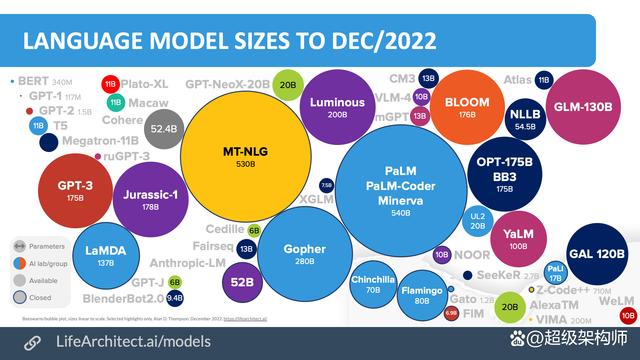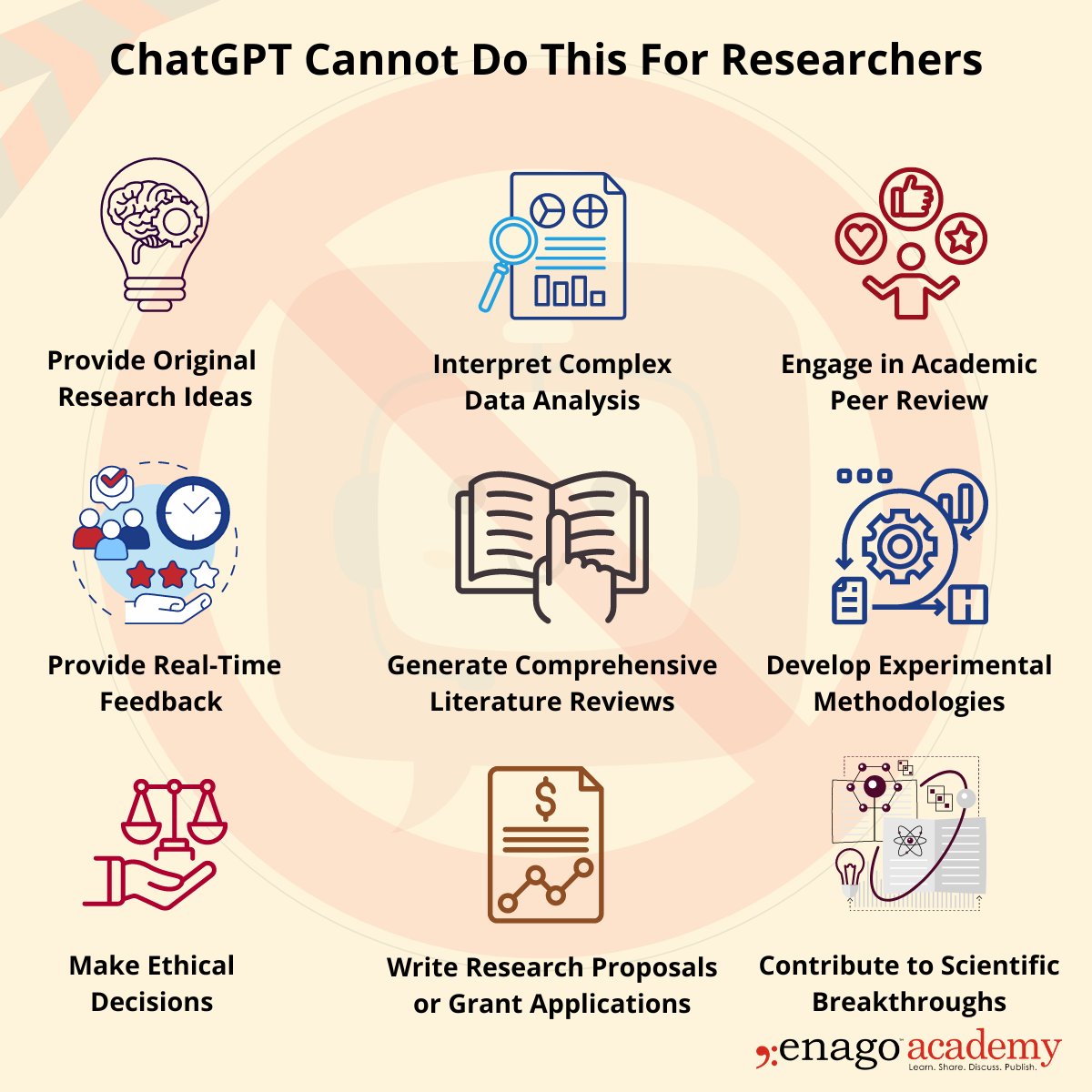ChatGPT in Research: Accelerating Discovery and Innovation

ChatGPT is a powerful large language model (LLM) that has the potential to revolutionize research by accelerating the discovery and innovation process. Here are some key ways ChatGPT can enhance research:

1. Literature Search and Synthesis: ChatGPT can quickly and efficiently search through vast amounts of research literature, identifying relevant studies and extracting key information. It can also generate comprehensive literature reviews, summarizing findings and identifying gaps in knowledge.

2. Hypothesis Generation and Testing: ChatGPT can assist researchers in formulating hypotheses and designing experiments by providing insights from existing research. It can also analyze data and identify patterns that may suggest new avenues for investigation.
3. Data Analysis and Interpretation: ChatGPT can perform complex data analysis tasks, such as statistical modeling, machine learning, and natural language processing. It can help researchers interpret large datasets and extract meaningful insights.
4. Collaboration and Communication: ChatGPT can facilitate collaboration among researchers by providing a platform for sharing ideas and discussing findings. It can also translate research findings into accessible language and communicate them to the public.
5. Efficiency and Time Savings: ChatGPT automates many research tasks, such as literature search, data analysis, and report writing. This can save researchers valuable time, allowing them to focus on more creative and innovative aspects of their work.
Use Cases:
- Pharmaceutical Research: ChatGPT can help identify new drug targets, optimize clinical trial designs, and analyze large datasets of patient data.
- Materials Science: ChatGPT can predict material properties, assist in the design of new materials, and simulate materials behavior.
- Climate Modeling: ChatGPT can analyze climate data, develop models to predict future climate scenarios, and identify solutions for climate change mitigation.
- Historical Research: ChatGPT can analyze historical documents, provide insights into historical events, and facilitate the preservation of cultural heritage.
- Social Science Research: ChatGPT can analyze survey data, conduct sentiment analysis, and help researchers understand complex human behavior patterns.
In conclusion, ChatGPT offers a transformative tool for research. By automating tasks, generating insights, and enhancing collaboration, ChatGPT accelerates the discovery and innovation process, empowering researchers to make groundbreaking advancements in their respective fields.## Chatgpt In Research: Accelerating Discovery And Innovation
Executive Summary
ChatGPT (Generative Pre-trained Transformer) is a revolutionary AI chatbot model, trained by Google. Its groundbreaking capabilities are transforming the research landscape, enabling the acceleration of discoveries and innovations. This comprehensive guide explores the multifaceted applications of ChatGPT in research, providing an in-depth understanding of how it impacts various domains.
Introduction
The advent of ChatGPT has redefined the realm of research, empowering researchers to tackle complex problems and achieve remarkable breakthroughs. ChatGPT’s proficiency in processing and generating human-like text, understanding context, and handling diverse research-related tasks has unleashed unparalleled opportunities for scientific advancements.
Frequently Asked Questions
- Can ChatGPT write research papers? Yes, ChatGPT can generate comprehensive research papers from scratch, leveraging its knowledge base and impressive writing skills.
- How does ChatGPT aid in literature reviews? ChatGPT enables efficient literature reviews by organizing and synthesizing vast amounts of research literature, identifying key themes and research gaps.
- Is ChatGPT capable of designing experiments? ChatGPT plays a vital role in experimental design by proposing innovative hypotheses, generating research questions, and suggesting suitable methodologies based on its understanding of research principles.
Top 5 Subtopics
1. Literature Review
- Automates literature searches, compiling relevant studies based on input parameters.
- Analyzes and extracts key insights from research literature, highlighting patterns and gaps.
- Generates comprehensive literature review summaries, including critical evaluations.
- Facilitates collaboration among researchers, enabling the sharing and discussion of review findings.
- Continuously updates its knowledge base, ensuring access to the latest research.
2. Hypothesis Generation
- Assists in formulating original and testable hypotheses based on existing knowledge.
- Explores different perspectives and research angles, expanding the scope of research.
- Provides insights into potential research outcomes, guiding experiment design and resource allocation.
- Facilitates the identification of novel research questions, leading to groundbreaking discoveries.
- Integrates interdisciplinary knowledge, fostering collaborations and cross-pollination of ideas.
3. Data Analysis
- Analyzes quantitative and qualitative research data, identifying trends, patterns, and correlations.
- Applies statistical techniques and machine learning algorithms to extract meaningful insights from data.
- Generates visualizations and reports, effectively communicating research findings to diverse audiences.
- Automates data cleaning and preparation, saving researchers time and effort.
- Integrates data from various sources, providing a comprehensive view of research subjects.
4. Research Writing
- Composes high-quality research manuscripts, including abstracts, introductions, methods, results, and discussions.
- Adheres to specific writing styles and academic conventions, ensuring research compliance.
- Proofreads and edits research documents, enhancing clarity, conciseness, and impact.
- Collaborates with researchers, incorporating their feedback and suggestions seamlessly.
- Generates citations and references automatically, upholding academic integrity and reducing errors.
5. Communication and Collaboration
- Facilitates communication and collaboration among researchers, breaking geographical barriers.
- Establishes online research communities and discussion forums, fostering knowledge exchange and idea sharing.
- Translates research findings into accessible language, bridging the gap between academia and the general public.
- Supports diverse research disciplines, fostering interdisciplinary collaborations and cross-fertilization.
- Enhances research impact by disseminating findings through various platforms, including social media and scientific repositories.
Conclusion
ChatGPT has emerged as an indispensable tool in the research landscape, revolutionizing the way discoveries are made and innovations are developed. Its exceptional capabilities in literature review, hypothesis generation, data analysis, research writing, and communication have empowered researchers to achieve unprecedented heights. As ChatGPT continues to evolve and integrate advancements in AI, the future of research holds boundless possibilities for transformative discoveries and groundbreaking innovations.
Keyword Tags
- ChatGPT
- Research Acceleration
- AI in Research
- Literature Review
- Research Innovation

